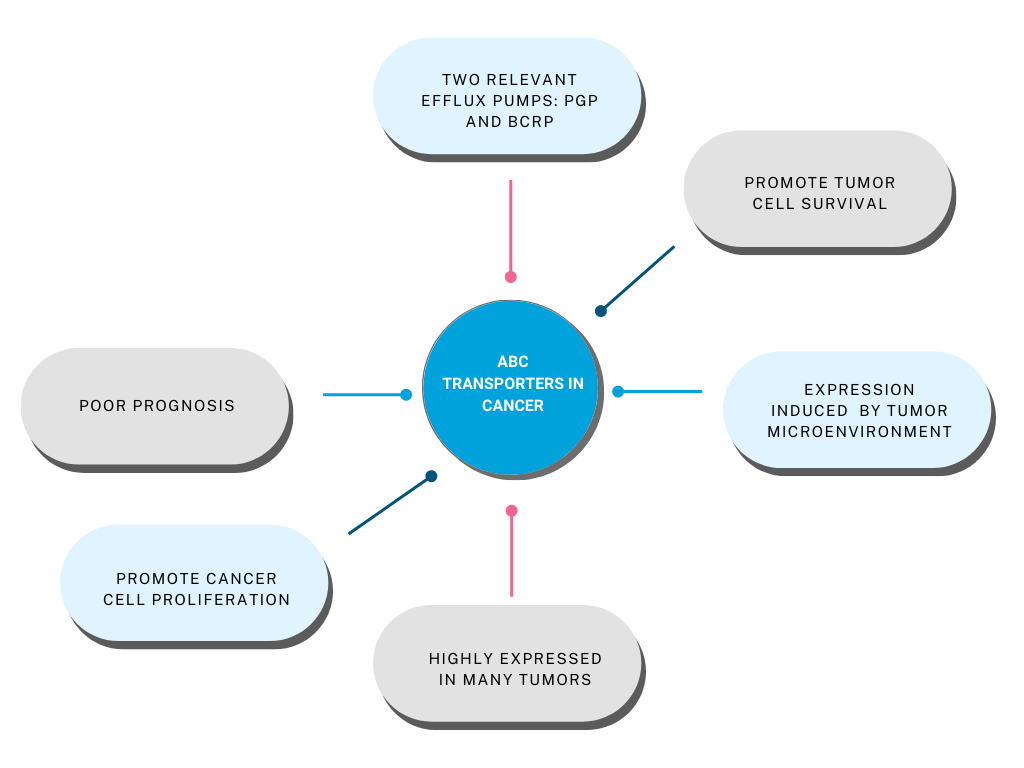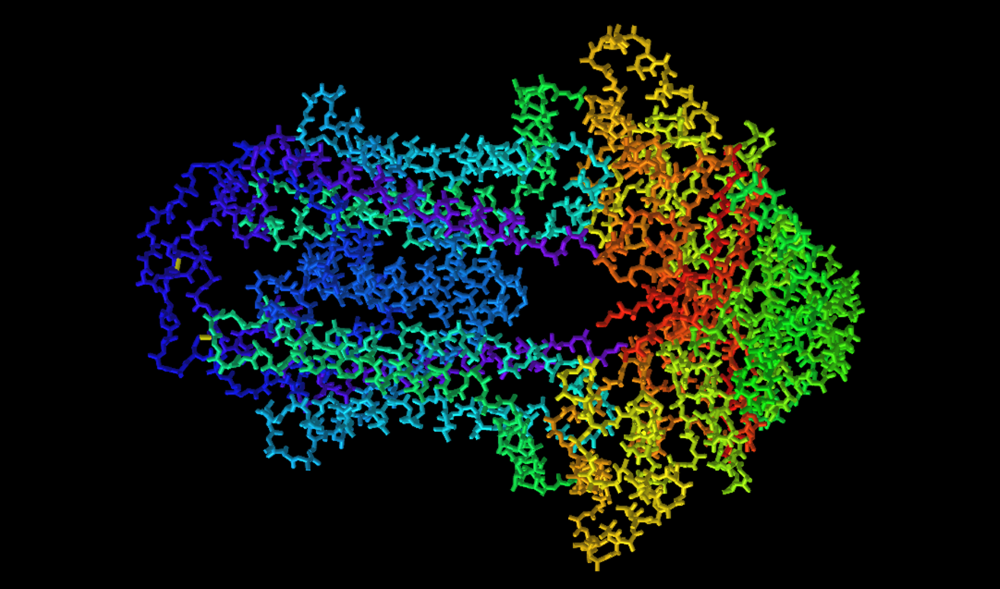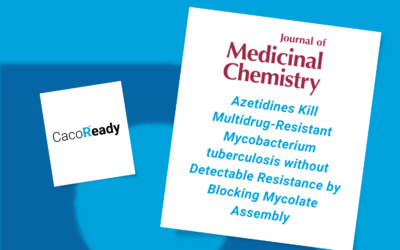Cancer is a disease that results from the transformation of normal cells into tumor cells through a multi-stage process. Currently, there exist a variety of strategies to fight against this disorder:
- Low molecular weight chemical-based compounds.
- Monoclonal antibodies that target specific proteins in cancer cells.
- Cancer growth blockers that inhibit cell growth.
- Antiangiogenic drugs that stop blood vessel formation to support tumor growth.
However, drug resistance is one of the main hurdles to oncotherapeutics. The presence of the superfamily members of the ATP binding cassette (ABC) transporters is well established as the main cause of multidrug resistance, since they efflux therapeutic compounds from cells and reduce the intracellular drug levels.
The role of ABC transporters in human cancer
This family of membrane proteins contains at least 48 genes in humans. Among them, the ABCB1 gene which codifies for the multidrug resistance protein 1 (MDR1), also known as P-glycoprotein (P-gp), and the ABCG2, that encodes the breast cancer resistance protein (BCRP), are the two most well characterized multidrug resistance (MDR) efflux pumps.
ABC transporters not only efflux chemotherapeutic drugs, but they also carry endogenous substances such as, lipids, peptides, inorganic anions, amino acids, polysaccharides, and inflammatory mediators. Among them, lipids are especially relevant players in cancer biology since they act as signaling molecules and regulators of a significant number of cellular functions. Changes in their composition help cancer cells to change tumor microenviroment (immune cells, vascular cells, connective tissue cells, cytokines, metabolites and exosomes) in order to support the oncogenic functions and cancer hallmarks. Eicosanoids, cholesterol, prostaglandins and leukotrienes are some of these lipids described as substrates of the ABC transporters.
By what means are P-gp and MDR1 transporters involved in the evolution of cancer?
Expression of ABC transporters correlates with tumor initiation and progression, since oncogenic signaling pathways regulate their expression.
Malignancy has also been associated with ABC efflux pumps. Specifically, studies have detected that an overexpression of P-gp in a subpopulation of uveal melanoma cells denotes a highly tumorigenic and metastatic tumor, while downregulation of BCRP inhibits in vitro invasion and migration of the U251 glioblastoma cell line.
Tumor proliferation also seems to relate with their ability to efflux cyclin-inhibitors and with the activation and up-regulation of ABC-transport activity by growth promoting factors. As an example, BCRP plays an important role in cancer cell proliferation as observed in vitro with the lung-carcinoma cell line A549 and the prostate cancer cell line DU145. Also, the knockdown of P-gp in colon-cancer cells result in G0/G1 phase cell cycle arrest.

ABC inhibitors, in increasing progress
To overcome drug resistance, three generations of transporter inhibitors (e.g., valspodar, cyclosporine A, verapamil, dofequidar, tariquitour) have been developed during the last four decades. Despite their clinical limited success, ABC inhibitors have currently more potency and are less toxic.
Besides synthetic compounds, current ABC transporter inhibitors focus on chemicals from nature plants. Some examples are:
- Flavonoids such as quercetin which downregulates the expression of P-gp and inhibits the efflux of daunorubicin in gastric cancer cells.
- Flavonoids such as naringenin and chalcone derivatives which exhibit a potent efflux inhibition on BCRP.
- Quinine, an alkaloid reported to revers doxorubicin resistance by inhibiting P-gp and BCRP in myeloma cells and colon cancer cells, respectively.
- Terponoids such as Sooneuphanone D and Sipholenol A which are potent P-gp inhibitors andGuajadial that not only inhibits P-gp but also BCRP.
To identify ABC inhibitors capable to reverse drug resistance and to gain insight into the molecular mechanisms of ABC transporters to export known cancer promoting substrates and their contribution to tumor initiation, progression and invasion, ReadyCell has available several ready-to-use cell-based assays that either endogenously express (Caco-2 cells) or individually overexpress (MDCKII cells) two relevant efflux transporters (P-gp /MDR1 and BCRP). Cells are preplated and differentiated on transwell insert plates and delivered worldwide by means of our patented gel-like Shipping Medium®.
For more information, contact our expert team through our form or at reagents@readycell.com
REFERENCES
- Shoari A et al. Res Pharm Sci 2021, 16:559-574 (doi: 10.4103/1735-5362.327503)
- Muriithi W et al. Cancer Biol Med 2020, 17:253-269 (doi: 10.20892/j.issn.2095-3941.2019.0284)
- Fletcher JI et al. Nat Rev Cancer 2010, 10:1047-156 (doi: 10.1038/nrc2789)
- Xiao H et al. Frontiers in pharmacol 2021, 12:1-17 (doi: 10.3389/fphar.2021.648407)





